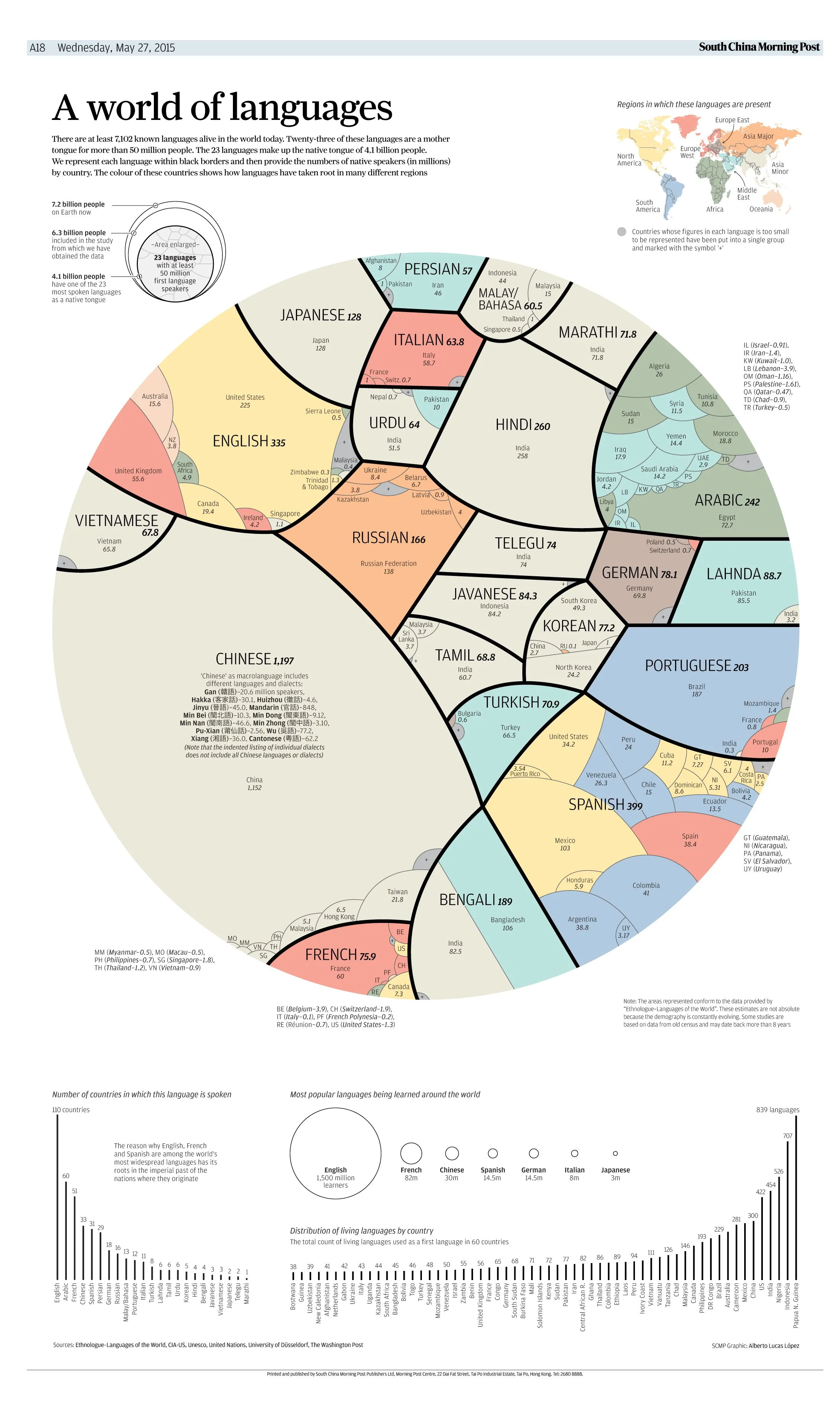this post was submitted on 17 Nov 2024
197 points (92.3% liked)
Data Is Beautiful
8473 readers
1 users here now
A place to share and discuss data visualizations. #dataviz
founded 4 years ago
MODERATORS
you are viewing a single comment's thread
view the rest of the comments
view the rest of the comments

Aaaaaah "Chinese".
A language family with many mutually unintelligible languages, large variantions in vocabulary and a script that us shared by all of them. And somehow we have to keep treating it as one language, so Winnie the Pooh isnt angry at us.
Yeah. It's not like I can communicate with someone in Cantonese when they only know Mandarin.
If the same script is considered Chinese, might as well put Japanese Kanji inside.
I can't even understand most Cantonese speakers when they're speaking Mandarin...
Well I can't even understand my Mandarin when I speak it
I'd like to point out that the dialect-language-family distinction is really a continuum. As dialects drift apart from each other, there is no point where God comes in and declares a dialect has graduated into its own language. Mutual intelligibility simply decreases continuously.
For instance, Portuguese and Spanish are widely considered to be different languages, although they are partially mutually intelligible, particularly in written form. Cantonese and Mandarin are less so, but still a bit. My uncle-in-law speaks Canto but can still understand my Mandarin (however, he can't respond). I won't deny that there is a political reason to want to refer to the Chinese/中文 languages as a single "language," but the classification is honestly quite arbitrary. My understanding is that linguists generally place the category of "Chinese" somewhere between "language" and "family."
Is Scots a different language than English? I don't think I could understand someone speaking Scots without incredible concentration. (However, it's still considered a "linguistic variety" of middle english.)
I am currently doimg course on both of these topics.
Yes, there is a continuum between these concepts, but there is a much better case for the idea that all ibero-romance languages are actually one language than for the "Chinese Macrolanguage".
Hakka for example is not mutually intelligible with any of the other branches of the family, yet it is still considered to be a dialect of Chinese. Why? Because it shares the script?
The political reason, imho, far outweigh the linguistical reasons for considering Chinese to be a language rather than a family.